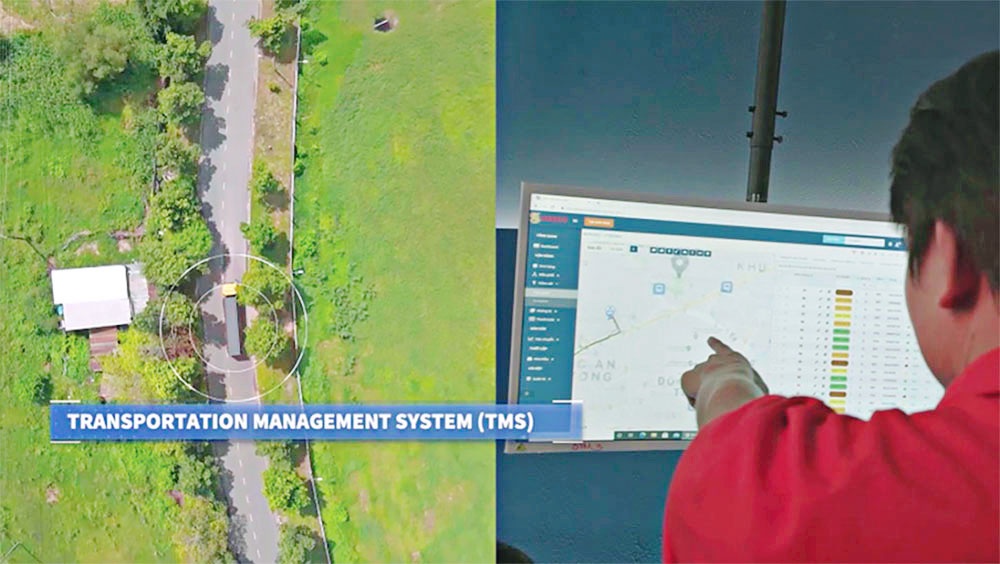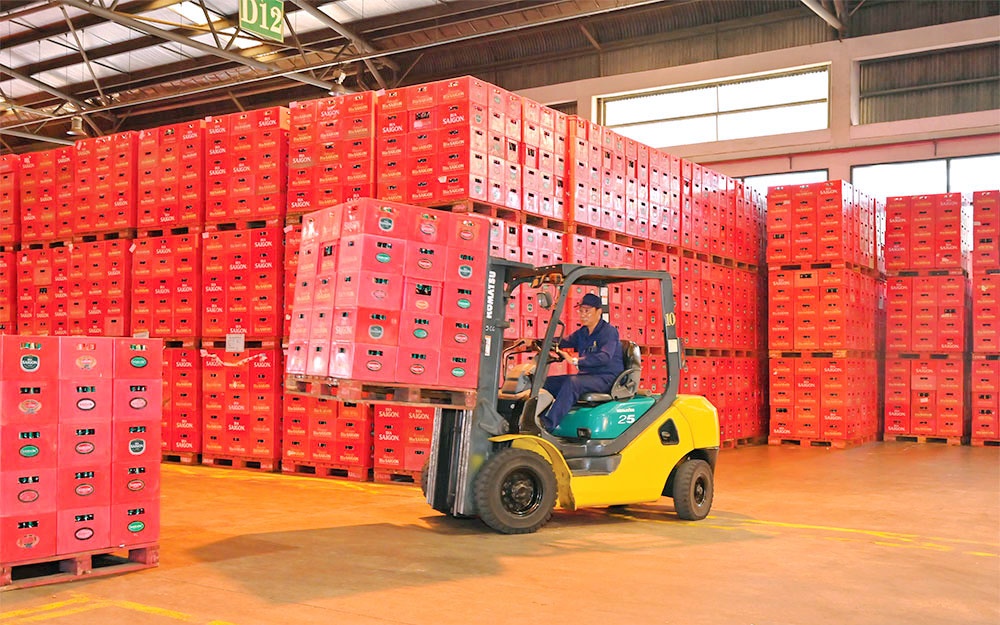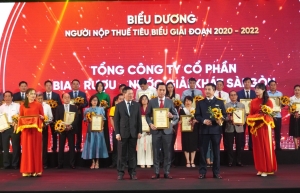SABECO 4.0 plans push onwards with automation
 |
| Transport and warehouse management systems have been given a major overhaul |
The brewer, more commonly known as SABECO, is interested in expanding both domestic and international markets, and so is continuing to build a product portfolio that meets consumer trends while restructuring the distribution system and perfecting the process of bringing products to consumers.
In August, Saigon Beer Trading Co., Ltd. (SATRACO), a company fully owned by SABECO opened a new distribution centre in Ho Chi Minh City, marking the first milestone in the group’s warehouse master plan project.
The facility, which boasts a total size of 31,000 square metres and a storage capacity of up to 30,000 pallets, will be run with the assistance of warehouse management and transport management systems to guarantee optimal storage and preservation of products.
At the same time, this will provide supply consistency and continuity in order to satisfy market demand on time.
The company says the success of the launch is a significant step forward in its 4.0 project, which has been deployed since 2020 to automate the transportation management process and order processing to better control goods and reduce delivery time, while also optimising costs and improving operational efficiency.
 |
Currently, SABECO also manages a wide supply chain and large network with 10-member trading companies and a distribution network of more than 200,000 points.
Only digital transformation can improve business efficiency, improve service and product quality, and ultimately strengthen SABECO’s brand in the market, according to Nguyen Hoang Giang, general director of SATRACO.
“The company decided to move all transportation staff to sit alongside software development staff. This plan basically solved all the problems that arose at that time and helped the company overcome the difficult period and firmly move forward in the digital transformation journey in the following period,” Giang said.
After nearly five years of the digital transformation process, SABECO has seen positive outcomes. About 100 warehouses, its 26 factories, more than 100 contractors and transportation partners, over 5,000 drivers, and 1,000 users and operations staff have already participated in its 4.0 system.
“We collected all the data on input usage, energy, and production capacity from all breweries to evaluate the best-performing factories and poorly performing ones. We will apply the best operating methods to breweries that are not currently operating well,” a representative of SABECO said.
Venus Teoh Kim Wei, deputy general director of Marketing and Communications at the corporation, said at a series of training programmes jointly organised by the Ho Chi Minh Communist Youth Union that business startup innovation has been centred on two key developments. The first is the continuous relevance of sustainability-focused innovation, and the second is the pervasiveness of the digitalisation process, which affects many different aspects of business operations.
“The digitalisation trend will not stop, continuing to bring people more comfort while reducing material burdens and adding value to the economy,” she said. “In parallel, these development trends also bring countless challenges. Startups will not only have to invest in reducing the environmental and social impact of their business but also ensure that this direction is communicated to consumers.”
The digital economy aspires to achieve 20 per cent of GDP by 2025 and 30 per cent of GDP by the end of this decade, according to the National Digital Transformation Programme for the period. Experts identify digital transformation in businesses as one of the key solutions for realising the plan, with innovating production to a modern model by applying technology to the entire operating process, from trade to distribution, helping to improve both labour productivity and business efficiency.
“However, the current barriers can be turned into advantages if startups know how to prioritise innovation appropriately. Pioneers who master technological and marketing innovations in sustainable development and digitalisation will gain a huge competitive advantage over other startups as well as businesses that have been operating for a long time,” Wei added.
SABECO began the second phase of its 4.0 transformation in 2022 in order to enhance its competitiveness and profit. The initiative focuses on sales, branding, manufacturing, supply chain, people, and unlocking potential, which is supported by the 4.0 project and corporate governance initiatives.
With nearly 150 years of development, Bia Saigon is currently the company’s oldest beverage brand, leading the beer industry in the Vietnamese market.
 | SABECO dedicated to high standards and anticipating 2024 momentum Saigon Beer-Alcohol-Beverage Corporation has reaffirmed the company’s commitment to upholding customers’ rights and its high standards of conduct. |
 | Ministry of Finance recognises SABECO's outstanding budget contributions By ensuring the dual mission of profitability and sustainability Saigon Beer-Alcohol-Beverage Corporation has been honoured for its contribution to the budget during the pandemic peak in Vietnam. |
What the stars mean:
★ Poor ★ ★ Promising ★★★ Good ★★★★ Very good ★★★★★ Exceptional
Related Contents
Latest News
More News
- A golden time to shine within ASEAN (February 19, 2026 | 20:22)
- Vietnam’s pivotal year for advancing sustainability (February 19, 2026 | 08:44)
- Strengthening the core role of industry and trade (February 19, 2026 | 08:35)
- Future orientations for healthcare improvements (February 19, 2026 | 08:29)
- Infrastructure orientations suitable for a new chapter (February 19, 2026 | 08:15)
- Innovation breakthroughs that can elevate the nation (February 19, 2026 | 08:08)
- ABB Robotics hosts SOMA Value Provider Conference in Vietnam (February 19, 2026 | 08:00)
- Entire financial sector steps firmly into a new spring (February 17, 2026 | 13:40)
- Digital security fundamental for better and faster decision-making (February 13, 2026 | 10:50)
- Aircraft makers urge out-the-box thinking (February 13, 2026 | 10:39)

 Tag:
Tag:















 Mobile Version
Mobile Version